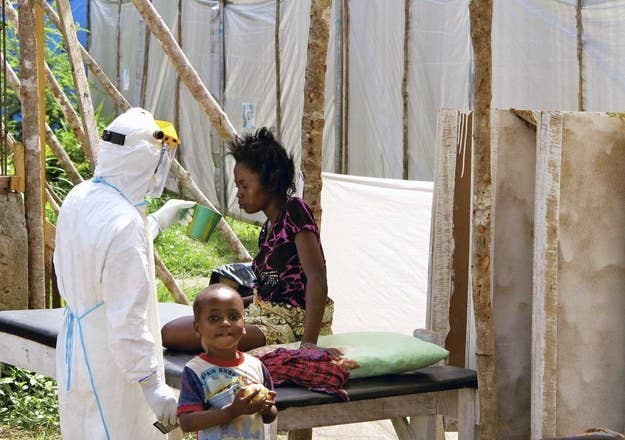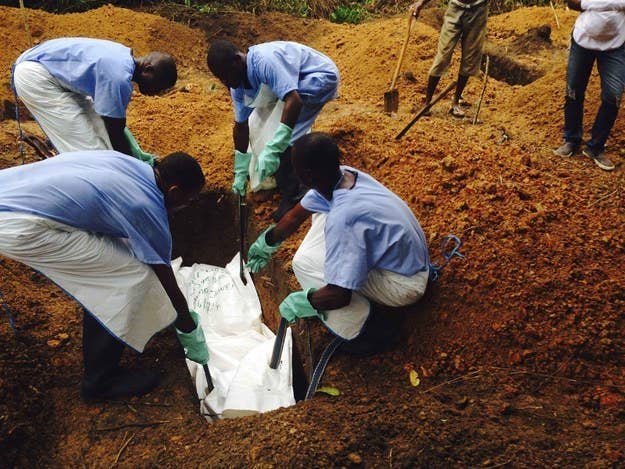
Researchers believe that the first patient in the recent Ebola outbreak was a 2-year-old boy from a village in Guéckédou, in southeastern Guinea, the New York Times reported.
The child died on Dec. 6, a few days after he got sick. A week after he died, the disease killed his mother, his 3-year-old sister, and his grandmother, reported the Times. Their symptoms included fevers, vomiting, and diarrhea, but no one was sure how they fell ill or what the disease was.
The town of Guéckédou is at the intersection of Sierra Leone, Liberia, and Guinea, where the disease likely made its way into all three countries.
Researchers believe that two people who attended the grandmother's funeral contracted Ebola and transported it back to their villages. A health worker who had cared for the dying patients carried it to his village, where both he and his doctor died, the Times reported.
From there, relatives of the sick who visited from neighboring towns were infected and brought it back with them. When Ebola was recognized in March, people throughout eight Guinean communities had contracted and died from the virus. Meanwhile, other cases were popping up in Liberia and Sierra Leone.
Liberia, Sierra Leone, and Guinea are among the world's poorest countries, and are recovering from decades of political corruption and civil war.

It is not yet clear how the 2-year-old boy contracted Ebola, or how the virus found its way to the region. It infects monkeys and apes, and prior outbreaks are thought to have been caused by someone exposed to an infected animal's blood while killing or butchering it.
This outbreak is thought to have spread so quickly due to an increase in urbanization. Previous outbreaks were better contained because the virus was isolated to specific areas, but as cities become more gentrified, there is an increase in travel between towns and villages.
A spokesman for the World Health Organization, Gregory Hartl, said that some towns did not cooperate with regulars early on.
"Early on in the outbreak, we had at least 26 villages or little towns that would not cooperate with responders in terms of letting people into the village, even," said Hartl.
The outbreak occurred in three waves: "The first two were relatively small, and the third, starting about a month ago, was much larger," Mr. Hartl said. "That third wave was a clarion call," he said.
Now, there are 1,779 cases of Ebola, including 961 deaths. In West Africa the outbreak is out of control and worsening.
